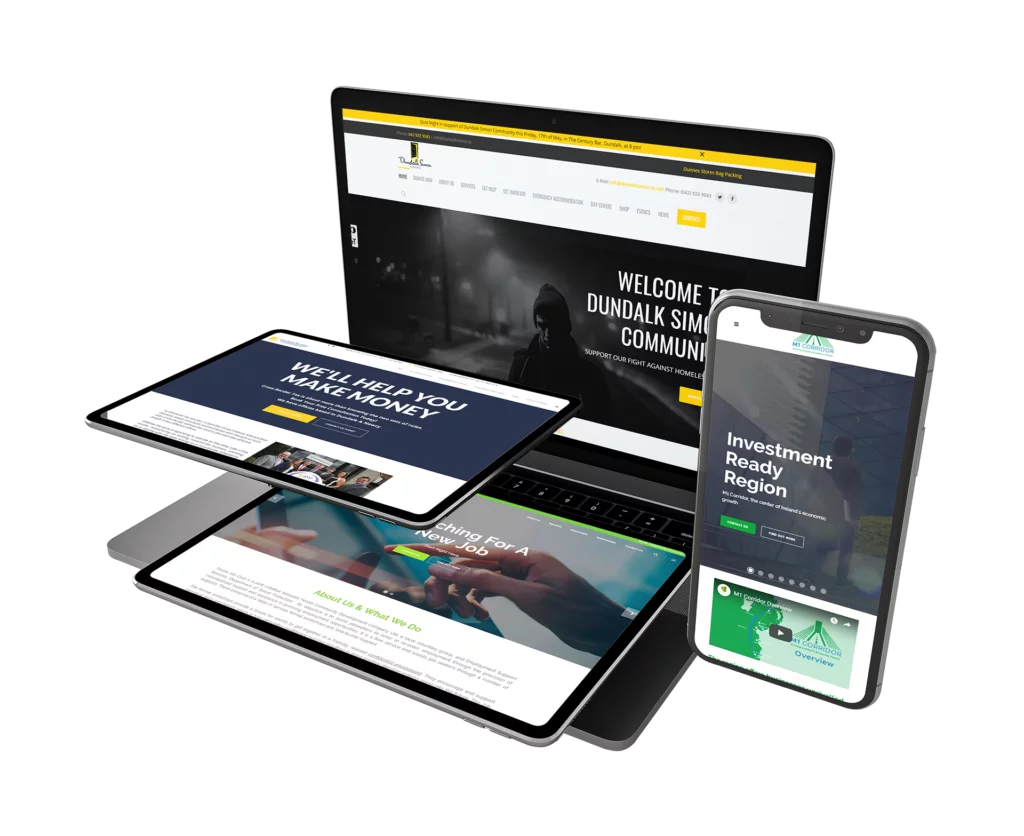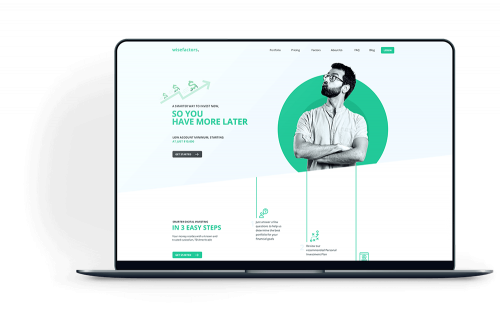Website Design in copyright: Crafting Custom Websites for Every Business
Achieve Online Success With User-Friendly Web Site Layout
In the significantly affordable electronic landscape, the style of a site can be a crucial factor in establishing a company's success. Easy to use style not just enhances the overall individual experience however likewise influences essential metrics such as retention, involvement, and conversion rates.
Value of Individual Experience
User experience (UX) plays an essential function in the success of a site, as it straight influences individual fulfillment and interaction. A favorable UX makes certain that site visitors can navigate the site effortlessly, access details promptly, and full preferred activities, such as signing or making an acquisition up for a newsletter, without stress.
In an electronic landscape where competition is fierce, a website that focuses on UX can dramatically improve brand name loyalty and retention. Users are more probable to go back to a website that provides a smooth experience, creating a cycle of repeat visits and increased client lifetime value. Efficient UX style can lower bounce prices, as users are much less likely to leave a website that satisfies their needs efficiently.
Moreover, search engines significantly consider individual experience aspects when ranking internet sites. Therefore, spending in customer experience is essential for achieving long-term success in the digital marketplace.
Secret Principles of User-Friendly Layout
An effective straightforward layout rests on a number of crucial concepts that enhance usability and ease of access. Primarily is simplicity; a clutter-free interface allows individuals to navigate easily, decreasing cognitive tons. This principle highlights the significance of clear and concise content, enabling individuals to find info rapidly without unneeded disturbances.
Consistency is another crucial part. Constant use of layouts, typefaces, and shades cultivates experience and constructs trust. Individuals should really feel comfortable as they discover various areas of the website, knowing that comparable components symbolize relevant capabilities.
Effective typography additionally plays a vital role in easy to use design. Readable typefaces, suitable dimensions, and sufficient spacing ensure that web content is conveniently understandable throughout various gadgets. Including instinctive aesthetic hierarchies assists customers recognize crucial info and actions at a glimpse.

Essential Features for Navigation
Effective navigating is crucial for any type of straightforward site, as it directly influences the general customer experience. A well-structured navigation system allows individuals to locate info quickly and efficiently, decreasing disappointment and enhancing involvement.
One vital attribute is a clear and instinctive menu that classifies content logically - website design copyright. This menu must be easily available from every page, often positioned on top or on the side of the internet site. Furthermore, incorporating breadcrumb navigating helps users understand their location within the website hierarchy and makes it much easier to backtrack
Look functionality is another crucial component, making it possible for users to discover particular material without sifting through several web pages. This feature ought to be plainly displayed and responsive to variants in input.
Moreover, a mobile-responsive layout guarantees that navigating continues to be smooth across tools. As mobile use remains to climb, menus ought to adapt to various display dimensions without endangering functionality.
Lastly, aesthetic signs such as highlighting the energetic page and making use of hover impacts can boost customer interaction. By incorporating these vital features, website designers can create a navigational experience that is not just straightforward yet likewise encourages expedition and retention.
Accessibility Factors To Consider
Accessibility factors to consider are indispensable to producing an user-friendly website that deals with all individuals, regardless of their specials needs or capacities (website design copyright). Sites must be developed to ensure that customers with visual, acoustic, cognitive, or motor impairments can engage with content properly. This begins with adherence to the Web Web Content Ease Of Access Standards (WCAG), which provide a framework for making digital web content more obtainable
Key techniques include the use of detailed alternative message for images, making sure shade comparison proportions satisfy accessibility standards, and offering captions for multimedia elements. Furthermore, the navigating needs to be instinctive, enabling individuals to tab via links and interactive elements conveniently. Implementing key-board navigation is vital check my reference for those not able to use a mouse.
Furthermore, succinct and clear language enhances understanding for users with cognitive constraints. Kinds need to be uncomplicated, with labels and instructions that are understandable. Routine accessibility testing, consisting of individual responses from people with specials needs, can assist recognize barriers and enhance functionality.
Measuring Layout Success

User responses studies and usability screening are essential in analyzing the effectiveness of layout components. These Recommended Site methods permit designers to collect direct input from users, recognizing discomfort factors and locations for improvement. In addition, tracking heatmaps can expose where users click most often, helping to educate format changes and content prioritization.
Analytics tools play a necessary duty in gauging style success by providing data-driven insights. Google Analytics can track customer actions, disclosing patterns that indicate whether the design is impeding the individual or facilitating trip. Ultimately, an effective website layout not only satisfies business goals yet also promotes a seamless and satisfying individual experience, driving involvement and loyalty in time. Routinely taking another look at these metrics guarantees that the web site progresses in positioning with individual needs and sector finest practices.
Conclusion
To conclude, user-friendly web site layout is extremely important for achieving on-line success. Prioritizing individual experience with simplicity, user-friendly navigating, and effective feedback systems not only enhances individual interaction and fulfillment yet additionally promotes Get the facts brand loyalty. Incorporating necessary navigating attributes and availability factors to consider additionally makes sure that all customers can properly engage with the website. Eventually, measuring design success provides beneficial understandings that direct continual enhancement, solidifying a solid online presence in an affordable electronic landscape.
Internet sites have to be made to ensure that users with aesthetic, acoustic, cognitive, or electric motor problems can engage with material successfully.Measuring design success entails assessing just how properly an internet site fulfills its designated goals while offering a positive customer experience. Google Analytics can track individual behavior, revealing patterns that indicate whether the style is helping with or preventing the individual trip. Inevitably, a successful site layout not just fulfills organization purposes yet likewise cultivates a pleasurable and smooth individual experience, driving involvement and commitment over time. Focusing on customer experience via simplicity, user-friendly navigation, and effective responses systems not just boosts individual involvement and satisfaction but additionally promotes brand name commitment.